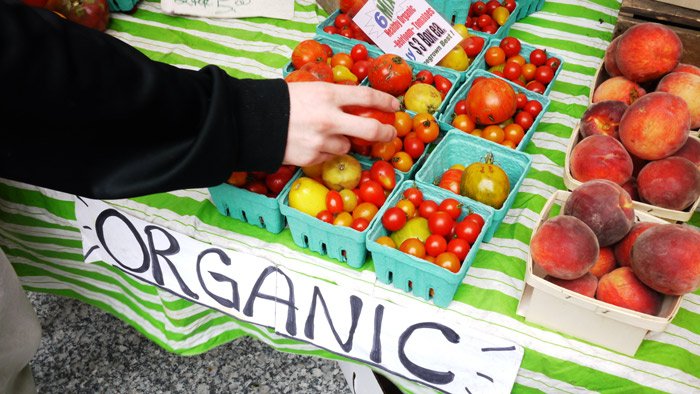
By Steven MacMillan/Steemit: 3 March, 2018
A major study has once again shown that pesticides are extremely toxic to human health, providing more evidence to support the notion that organic produce is safer and healthier. The study, published by the European Parliament at the end of 2016, was a review of the “existing scientific evidence regarding the impact of organic food on human health,” and it further highlighted the numerous health problems associated with high pesticide exposure.
The study detailed how a wide array of pesticides cause “adverse neurological effects” in both adults and in vulnerable developing brains, often leading to “losses of IQ points” (emphasis added):
“At least 100 different pesticides are known to cause adverse neurological effects in adults, and all of these substances must therefore be suspected of being capable of damaging developing brains as well. Such adverse effects are likely to be lasting and one main outcome is cognitive deficits, often expressed in terms of losses of IQ points. The combined evidence suggests that current exposures to certain pesticides in the EU may cost at least € 125 billion per year, as calculated from the loss of lifetime income due to the lower IQs associated with prenatal exposures. This calculation is almost certainly an underestimation, and it does not take into account the possible contribution made by pesticides to the development of other prevalent diseases such as Parkinson’s disease, diabetes and certain types of cancer. Although the scientific evidence is incomplete, substantial data point to the developing brain being extremely vulnerable to pesticide exposure” (p.32).
Due to the very limited use of pesticides in organic farming, the authors of the study concluded that organic food is a far healthier and safer option (emphasis added):
“Increased production and consumption of organic food in the EU is likely to substantially reduce the pesticide exposure of both consumers and producers. This effect is both direct, via a low use of pesticides in organic agriculture, and indirect, via the development of non-chemical plant protection practices that may eventually be adopted in conventional agriculture as part of a transition towards integrated pest management. As a consequence of reduced pesticide exposure, organic food consequently contributes to the avoidance of health effects and associated costs to society, as well as other hidden and external costs related to pesticide use, as recently reviewed and suggested to be greatly underestimated” (p.32).
Furthermore, the report detailed how the small amount of human studies that directly looked at the relationship between organic food and human health, indicated that people who consume organic produce have a lower risk of developing such diseases as non-Hodgkin lymphoma (emphasis added):
“The few human studies that have directly investigated the effects of organic food on human health have so far yielded some observations, including indications of a lower risk of childhood allergies, adult overweight/obesity and non-Hodgkin lymphoma (but not for total cancer) in consumers of organic food. Owing to the scarcity or lack of prospective studies and the lack of mechanistic evidence, it is presently not possible to determine whether organic food plays a causal role in these observations” (p.54).
This study was published just over 18 months after the cancer agency of the World Health Organization (WHO) – the International Agency for Research on Cancer (IARC) – concluded that glyphosate, the active ingredient in Monsanto’s herbicide Roundup, “probably causes cancer.” In an American test conducted in 2016, glyphosate was found in the urine of 93 percent of people tested.
In 2011, a study conducted by researchers at the University of California, Berkley, found that prenatal exposure to high levels of organophosphate pesticides was associated with low IQ scores. “Children in the study with the highest levels of prenatal pesticide exposure scored seven points lower on a standardized measure of intelligence compared with children who had the lowest levels of exposure,” read the press release.
Given the amount of studies in the scientific literature that link high pesticide exposure with an array of health problems, it is no wonder that the demand for organic produce has skyrocketed in many parts of the world in recent years.
Steven MacMillan is a freelance writer.
Thank you very much for sharing.
EAT ORGANIC!!!
Thanks